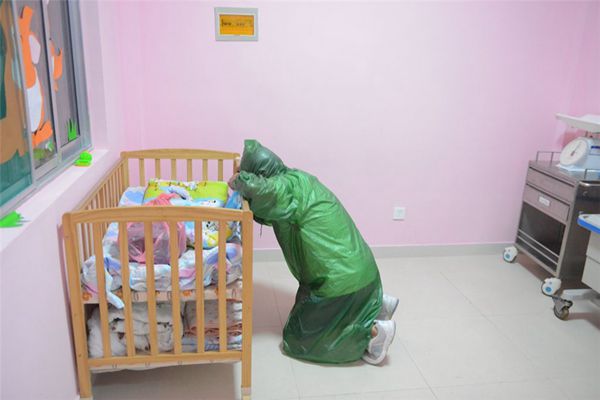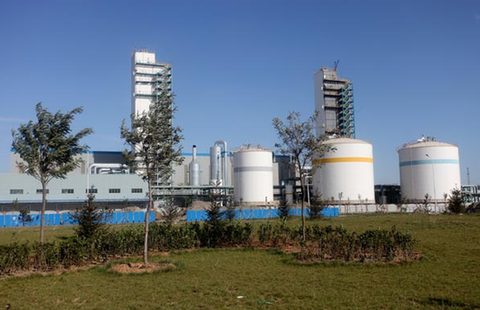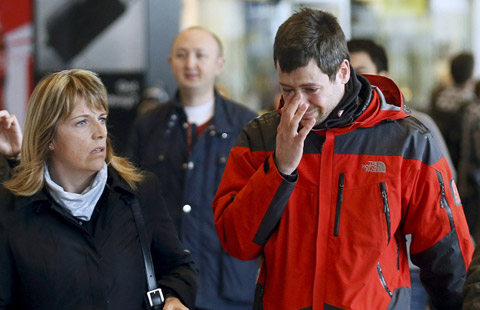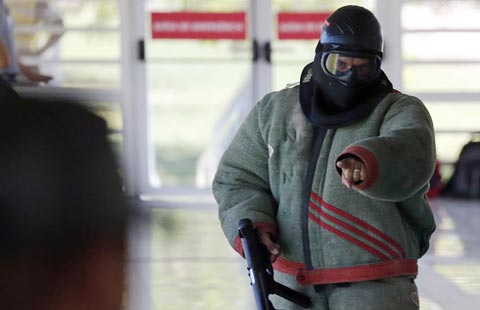Baby havens 'under great pressure'
Updated: 2015-03-27 07:57
By CANG WEI(China Daily)
|
||||||||
 |
|
A father, dressed in raincoat and mask to remain anonymous, kneels beside his daughter before leaving her at a baby hatch in this 2014 file photo. [Photo/CFP] |
An organization that runs a safe haven for abandoned babies has had to scale back its operations because of financial constraints and a lack of workers.
The haven was opened by the Quzhou Children's Welfare Institution in Zhejiang province in May, and it received 24 babies in its first six months of operation. Staff members prevented a further 66 babies from being abandoned by talking their parents out of the idea.
The haven, a white booth covering an area of less than 10 square meters, has had to cut its opening hours. It is equipped with a crib, an incubator and surveillance cameras to prevent parents from simply walking in and abandoning their children. The facility is staffed around the clock.
Residents who find a baby that has been abandoned by its parents can take it to the haven.
"The haven now opens for only six-and-a-half hours a day from Monday to Friday," a worker surnamed Chen said. "Only orphans and babies under 12 months old whose parents cannot be traced are accepted. Parents who try to abandon their children are reported to the police."
Havens in other provinces are experiencing similar problems, with many receiving more babies than they can handle.
The Nanjing Children's Welfare Institution, in Jiangsu province, opened a facility in December 2013 that received 150 abandoned children in its first three months. It now accepts that number over a whole year.
The children have been sent to other institutions in the province where they can receive more attention and better treatment.
The institution in Guangzhou, Guangdong province, suspended its haven after receiving more than 260 children from January to March last year.
Zhu Hong, director of the Nanjing institution, said the organization is under "extreme pressure". Ninety-nine percent of the abandoned children it takes in have serious mental or physical disabilities.
"Lack of funds is not the only problem," said Zhu. "We cannot hire enough workers or find buildings large enough."
Many parents abandon their disabled children at institutions in big cities after trying in vain to have them treated at hospitals.
"Media exposure is also one of the reasons that institutions in big cities receive too many abandoned children," Zhu said.
"After learning about the havens and deciding to abandon their children, many desperate parents from rural areas spend hours taking their children to big cities in the belief that they will receive better treatment."
Zhu did not rule out the possibility that the Nanjing haven will close if the number of abandoned children continues to increase.
Yan Yiqi in Hangzhou contributed to this story.

 Top 10 steel producers in China
Top 10 steel producers in China
 Highlights of China Fashion Week
Highlights of China Fashion Week Cockpit mystery emerges
Cockpit mystery emerges
 ISU figure skating worlds opens in Shanghai
ISU figure skating worlds opens in Shanghai
 Canola flowers form the emblem of harmony
Canola flowers form the emblem of harmony
 Your city in the shape of tiny round planet
Your city in the shape of tiny round planet
 Families mourn victims of Airbus A320 crash
Families mourn victims of Airbus A320 crash
 38,000 Brazilian troops to safeguard 2016 Rio Olympics
38,000 Brazilian troops to safeguard 2016 Rio Olympics
Most Viewed
Editor's Picks

|

|

|

|

|

|
Today's Top News
Apple Pay would face battle in China: Analysts
Michigan firm gets $1 billion Chinese contract
Teen's DNA project nets student Intel science award
China, US bear down on fugitives, 'Sky Net' unleashed
Analysts: US urged to not politicize bank
Germanwings' co-pilot 100 percent fit to fly: Lufthansa CEO
Yuan backed on Silk Road
RMB hub makes a splash
US Weekly

|

|







